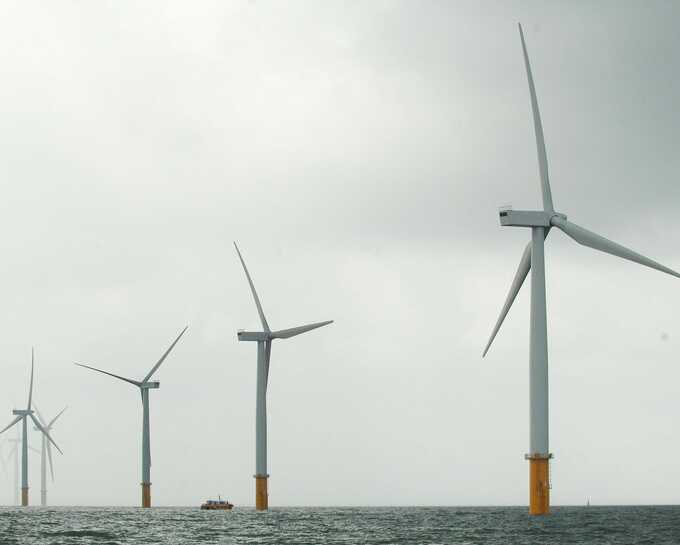Trump accused of attacking UK energy policies on behalf of fossil fuel industry

Campaigners say US president-elect’s call to ‘get rid of windmills’ is based on North Sea interests of oil and gas firms.
Climate campaigners have accused Donald Trump of attacking Britain’s energy policies on behalf of the fossil fuel industry, which made record donations to his presidential campaign.
The US president-elect wrote in a social media post on Friday that the British government was gravely mistaken by cracking down on North Sea oil and gas producers – and that the UK should abandon wind generation.
The UK plans to double its onshore wind generation and quadruple its offshore wind capacity by the end of the decade, aiming to run a clean power system by 2030 and hit legally binding climate targets. At the same time it has ruled out granting any new oil and gas licences.
“The UK is making a very big mistake,” Trump said in a post on his social media platform Truth Social. “Open up the North Sea. Get rid of Windmills!”
Greenpeace UK’s chief scientist, Doug Parr, said: “The US president-elect is speaking not on behalf of people in the UK, but his own ‘drill baby drill’ agenda and the Big Oil bosses who poured millions into his campaign.”
Tessa Khan, the executive director at Uplift, a group that campaigns for a swift but fair transition away from oil and gas production in the UK, said Trump was “clearly looking after the interests of US oil and gas firms”.
“His team is shot through with oil and gas interests that want the rest of the world, the UK included, to slow its transition to clean energy and remain hooked on oil and gas for years to come just so they can keep profiting,” Khan said.
The exact catalyst for Trump’s intervention was unclear but the social media post linked to an announcement from November in which the US oil firm Apache blamed the UK’s windfall tax for its decision to leave the North Sea before the end of the decade.
John Christmann, the chief executive of Apache’s parent company, APA, said the “onerous financial impact” of the windfall tax combined with a string of new regulations to reduce harmful climate emissions would make its British business “uneconomic” by 2029.
The Texas-based firm set out its plans to leave the ageing oil basin weeks after the chancellor, Rachel Reeves, used her October budget to push the headline rate to almost 80% for oil and gas companies.
Apache became the latest in a string of oil companies to turn its back on the North Sea after the Labour party came to power in July with the promise to end new oil and gas licences and raise taxes for the high-polluting sector.
The US oil company Exxon completed its exit from the North Sea that month, while the independent oil and gas producers Harbour Energy and Deltic Energy have set out plans to sell some of their assets in the region.
Parr said Trump’s comments “betray his total ignorance of the realities of the UK’s energy situation”, and that jobs in Britain’s offshore sector had halved in the last decade despite more than 400 new licences being issued, proving that the oil and gas basin was in terminal decline.
Khan said: “Ill-informed attacks on the UK’s efforts to become a clean energy superpower will not change reality – the nation has burnt most of its gas, and what’s left of our oil is mainly exported.”
A government spokesperson said: “Our priority is a fair, orderly and prosperous transition in the North Sea in line with our climate and legal obligations, and we will work with the sector to protect current and future generations of good jobs.
“We need to replace our dependency on unstable fossil fuel markets with clean, homegrown power controlled in Britain – which is the best way to protect bill payers and boost our energy independence.”
Read more similar news:
Comments:
comments powered by Disqus

































